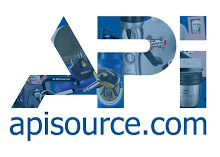Connecting, closing and reselling within the retail market.
by Nicole Stella
Making the Connection
Arsi Seradarian, vice president and CFO of Pacobond Inc., Sun Valley, Calif., explained the two distinct opportunities within retail markets: individually owned boutiques and chain stores and franchises. "Usually, when small boutiques open, they turn to local distributors through personal connections or through the phone book/internet for their packaging design and supplies," Seradarian explained. "Boutiques do not change their packaging design often and more emphasis is given to quality than price. With enough persistence, [a new distributor] will be given an opportunity to quote when the inventory runs low, and the store is ready to order their next packaging," she said.
The second opportunity, chain stores and franchises, is an arena where the going is a little tougher. "Chain stores and franchises are very tough to penetrate," said Seradarian. "Everything is based on connection, connection, connection and price, price, price. First you have to find the correct buyer for your product. Every buyer in the chain store has already worked with a supplier before and over the years, befriends and favors that distributor/supplier over a new one," she continued.
Mark Jenkins, MAS, sales director for Pioneer Balloon, Wichita, Kan., noted too that it's difficult to land and cultivate the business, however the rewards are well worth the efforts. He added, "The biggest sales opportunities are within chain stores and franchises," but it's getting a foot in the door that can be tricky. He explained the key is traditional networking, pursuing referral avenues and memberships within trade organizations.
Knowing the right people is definitely helpful, catching their eye once you've made that initial inroad is also important. Traci Pegg, vice president of sales and marketing for Royal Crest Promotions, Golden, Colo. noted one way to make your mark. "Holiday selling opportunities catch the interest of a retailer," she said. "Most retailers make a majority of their annual income [during this time of year]." She explained that distributors can catch their attention with a holiday store decoration or display. Pegg suggested distributors bring solutions to boutique and franchise owners that will be unique and bring people into their place of business during specific events and times of the year.
Making It Happen
As a distributor, you may be wary of going after these accounts for fear that you should be able to design the promotion, and with a big name brand or an exclusive boutique you feel you don't have the skill set to make the right impression during presentations or pitches. But this fear is unwarranted. The distributor's number-one job is to land the account, suppliers who specialize in this niche can handle the rest. Pegg explained, "We virtually render samples with logos where people would like to brand items or show concept for presentations."
For Pacobond Inc., a knowledge of basics is all that is needed. "In our case, the distributor should have basic knowledge of bags, meaning he should know how the bag is made and what makes our product different than others," said Seradarian. "[A distributor] doesn't have to have design skills or come up with the promotion design. We can guide the distributor before the order is confirmed, and once the order is confirmed, we will take over and take care of all the manufacturing details until the order is shipped."
Making the Resale (and the Resale and the Resale …)
Once you've landed new business, quality products paired with excellent customer service will help you keep it. That's where the payoff lives. Said Seradarian, "For Pacobond, an order for shopping bags can be as low as 1,000 bags to hundreds of thousands bags. For one very large client, we [have] produced millions of bags over a period of time," she said.
For Royal Crest Promotions, reorders are also very high. Pegg noted that once sold these accounts are easy to manage with many points of service opportunities. "Reorder ratios are 85 percent annually from the same customers every year for the same product, same time of year," she said.
Next to massive reorders there is another upside to the retail sector. Jenkins mentioned that for Pioneer Balloon, these orders are typically the companies largest spot orders and all that product in the commerce stream gives their own brand a boost. "The large size of the orders [offers] broad exposure of our products in the consumer market," he said. The vast exposure of the brand and the product helps with the referral networking needed to make it in the retail market and keep their product line top of mind to other buyers for other promotions.
Once You're In, You're In
"The retail market industry is a very close-knit industry. All the chain-store buyers know each other, and having a good reputation is key to surviving in this industry especially during these tough economic times," said Seradarian. Jenkins echoed this sentiment, explaining, "It's all about making the buyer successful and helping move along consumer sales efficiently."
So how exactly do you make a buyer successful? Seradarian explained success comes from providing quality product, exactly as promised. "Have a good product to sell and have the backing and support of a reputable supplier and excellent service," she said. "After all, the distributor is the middle man between the supplier and the end-user, and he is only as good as the promise his supplier makes. In our case, we know that our livelihood comes from the distributor, we will try to keep our distributor happy in order for him to do the same with his client."






No comments:
Post a Comment